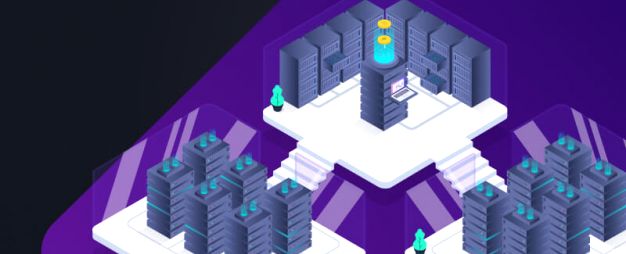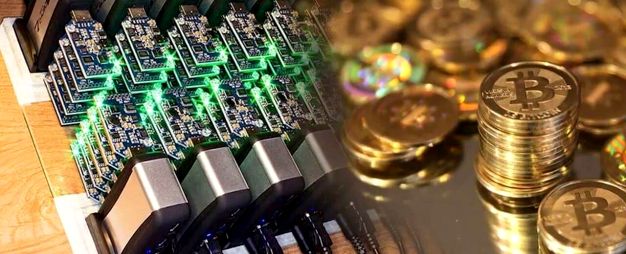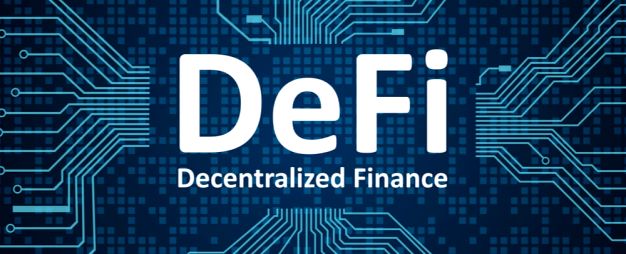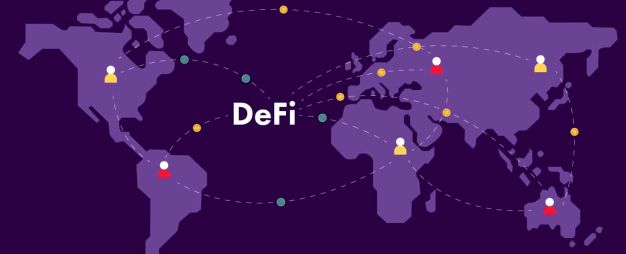Data Center or Home Outlet? Understanding aspects of the law
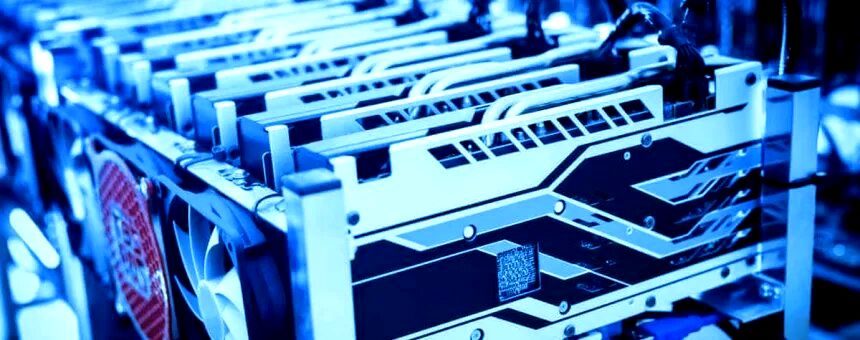
The days when it was possible to mine Bitcoin while sitting at home and "Drinking Your Juice in the Hood" are over. Nowadays, it is not even decent to think about effective BTC mining in apartment conditions. Not to mention trying to turn those thoughts into action.
Nevertheless, besides bitcoin, there are other virtual coins that can be mined without resorting to industrial facilities. There are also data centers that provide their services to house your hardware.
But to what extent is home-based (and not only) virtual coin mining legal in different countries? There's a question, but no answers yet. Ultramining.com will give them to you right now☺
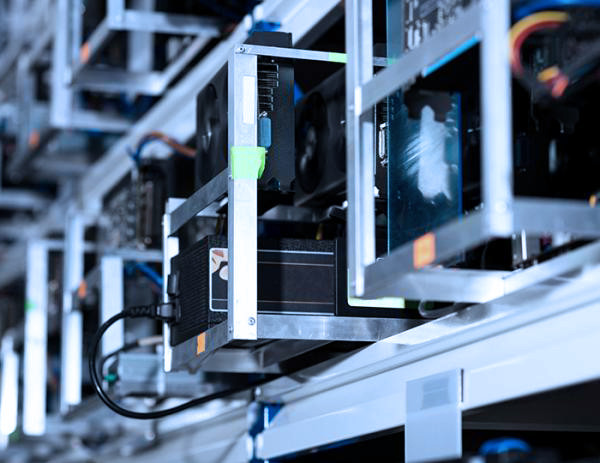
Learn more about data centers
Renting and equipping a room for your mining devices is not for everyone's pockets. Then special companies come to help, which will allow you to set up your asic in a favorable environment for it.
Data centers provide you with a place for your equipment. They guarantee its safety, the proper temperature regime. And in a good way, their charges for electricity and accommodation should not hurt your pocket.
Of course, this option for many will seem the most convenient. But not in all regions it will be profitable. And not every country will allow you to mine and sell virtual coins on its territory.
We will talk more about the legal aspect in the next section. For now, the positive and negative sides of cooperation with data centers.
Pros of data centers
- Maintaining the necessary level of humidity. It should not be lower than 25 percent and not higher than 45 percent.
- Preservation of temperature mode. A very big plus. Since makeshift mining farms suffer from overheating.
- Data center workers are constantly making sure that your equipment doesn't get dusty. Chances are, if you are busy with household chores, or you have to combine mining with work, you won't have time for that.
- A guarantee of maintaining constant voltage of the devices placed in the company's building.
- Several Internet providers are involved.
- Fault-tolerant systems.
- Most data centers provide 24-hour support. You will be able to find out how your ashik is doing at any time.
Disadvantages of these companies
- Despite all the advantages that the company provides, you will have to rely on the professionalism of its employees. Hence the unforeseen situations. Although you sign a contract with a data center, it is often written in the documents that the owner of the equipment is responsible for situations beyond the control of the company. So-called "Uncontrollable Risks".
- Some data centers have outdated equipment. Keep a close eye on the technical equipment in use by a particular company.
Mining at Home and Data Centers: Legal Aspects
The extent to which virtual coin mining is legal will depend solely on your geographical location. Unfortunately, quite a few countries have restricted not only home mining, but also any activities related to cryptocurrency mining. This also applies to selling, fixing equipment for farming virtual coins.
Why are politicians of certain states so offended by Bitcoin and its «counterparts»?
It probably has to do with supporting the dominance of fiat currencies in the region. Virtual coins are the hardest to control.
Does mining really undermine countries' economies? The question is debatable. Because with proper legal regulation, virtual coin mining generates huge amounts of stable financial units (the same U.S. dollars).
It is clear that there are always risks of illegal mining. But with the right approach to the issue, the losses from unauthorized crypto mining will be insignificant.
If we talk exclusively about mining, virtual coin farming is very energy intensive. And not all countries can take out such a loss of electricity.
The legality of home mining in the Russian Federation
Farming virtual coins in the Russian Federation is not officially banned. In case the owners of crypto-farms legally place their equipment in special premises, they have no problems with paying electricity at the current rate and pay taxes.

When you put one asic in your apartment, unnecessary attention to you should not arise. The "well-wishers" who find out about your hobby, of course, can complain about you to the tax office. Then you will have to be punished for illegal business activities. Probably get away with a small fine. Because it is unlikely that you will get a lot of crypto on one asik.
Another thing is if you are going to set up a mining farm in your living quarters. Of course, such an "enterprise" will make a lot of noise and bother the neighbors. In such a case, the tenants of the house can go to the investigation committee, to initiate an inspection of the premises. And if they find a crypto farm there, you are likely to face charges under Article 238 of the Criminal Code of the Russian Federation - "Performing work that does not meet safety requirements".
Regulation of legal status
Yes, there are no legal restrictions on mining in Russia, it is dealt with. But there are also no coherent legal acts regulating the farming of virtual coins. A year ago, Russian politicians had a controversial position on crypto. But now it is helping Russia to circumvent sanctions.
We will talk more about mining in Russia in a future article. Follow Ultrmining.com for updates.
Mining in China
Perhaps one of the most high-profile examples of the rise of the mining industry in any nation and… its fall. Initially, virtual coin mining was seen by the government of the "Celestial Empire" almost as "Manna from Heaven".
However, during 2021, this Asian country has seen tough government actions to curb mining in the state. Chinese officials did not hesitate to threaten those who are engaged in pharma crypto. And all those who conduct any operations with virtual assets.
It is noted that such measures were aimed at stifling foreign crypto mining in the country. It is considered that these radical actions should have cleared the way for domestic crypto to be mined.
But something clearly did not go according to plan. Many people who were mining virtual coins simply left the country. And went to seek refuge in more adapted to the pharma states.
By the way, the ban and harsh measures to destroy mining farms don't prevent China from being in second place by the number of mined BTC.
Other states and crypto mining/sales
Fortunately, the list of countries where mining and virtual currency operations are officially banned is constantly shrinking. Nevertheless, there is a list of states that are at war with mining. Somewhere hard, somewhere "cold". And no matter where you are mining crypto: at home or in underground data centers. Let's take a look at some countries.
- Algeria. The use and mining of crypto is prohibited.
- Belarus. Decree No. 8 states: a legal entity can engage in mining activities only after acquiring the status of a resident of the High Tech Park. You also have the opportunity to use crypto in this state. However, transactions, for example, such as exchange activities, can only be conducted through HTP residents.
- Bolivia. BTC and mining are prohibited.
- Colombia. Financial institutions are not allowed to deal with bitcoin.
- Egypt. BTC transactions are banned.
- Indonesia. As of January 2018, you will not be able to use virtual coins as a means of payment.
- Ghana. Although crypto is banned here, the government of the state is interested in blockchain technology. There could probably be positive moves in this direction soon.
- Iran. Virtual coin mining is encouraged in this country. Moreover, the government encourages people to farm crypto. However, it is no longer possible to trade crypto obtained abroad.
- India. Last year, there was an initiative to criminalize the manipulation of crypto. This also applies to mining.
- Iraq. Bans operations with virtual coins. Despite this, crypto and mining are becoming increasingly popular in that country.
- Kosovo. The government of the country banned mining in January of this year. The reason is the energy crisis.
- Mexico. Cryptocurrency is not a legal means of payment.
- Nepal. BTC is declared illegal.
- Northern Macedonia. Bitcoin, ether, and other crypto are not officially allowed. This is the only country in Europe with such restrictions.
- Turkey. Payment for goods and services is banned.
- Vietnam. You can't use virtual coins as a means of payment. You are allowed to trade them and store the currency as an asset.
So where is the safest place to mine?
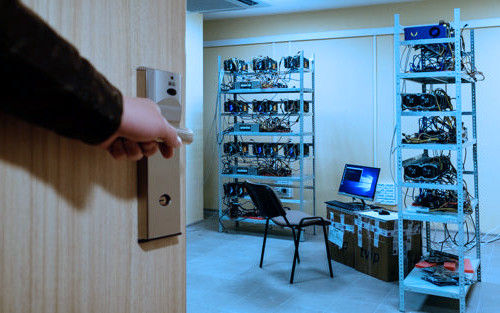
If you are going to farm BTC, ETH and so on in a country where virtual coin mining is not officially banned, you shouldn't have any problems with the law. If we are talking about domestic, not industrial mining, then no one will even know about the existence of an asic in your apartment. And even if the tax office comes knocking at your door, you can get away with a warning or a fine for illegal entrepreneurial activity. Everything here will depend on the legal framework of the country you are in.
We strongly advise against placing mining farms in residential or any other premises that are not intended for farming virtual coins. It can lead to criminal responsibility.
It is much easier to officially place your devices in a data center. In this case, you can be safe for them. Unless, of course, the one who will host you will not suffer financial collapse, or a meteorite falls on the data center (which is unlikely).
Also, choose the provider of such services, which will provide you with adequate power costs.
The case of each person who is going to mine crypto is different. Some people will be fine to rent premises in their native Omsk (for example), someone will move their mining facilities across the ocean.
The main thing is not to mine crypto where it is prohibited by law. If you keep this important rule in mind, you will easily get your virtual coin.
